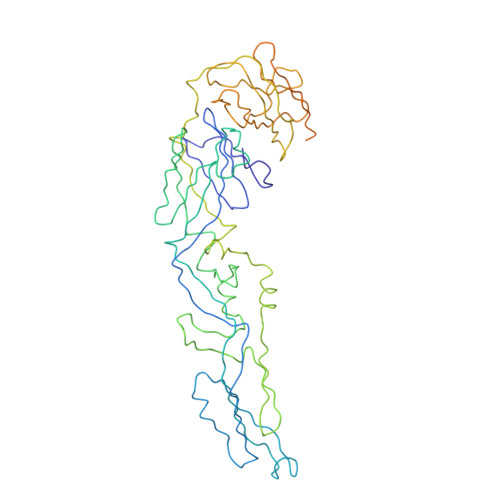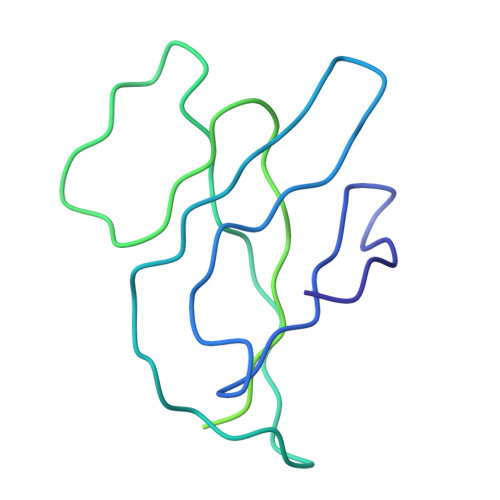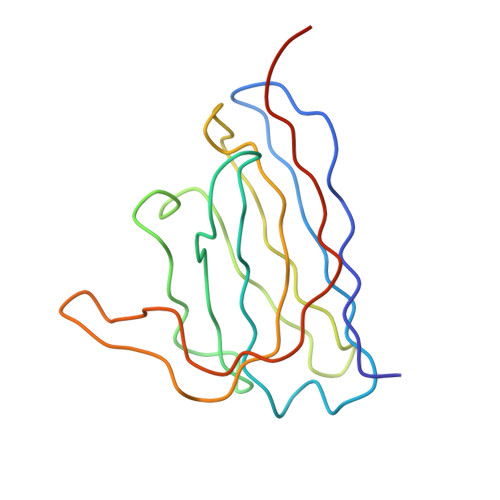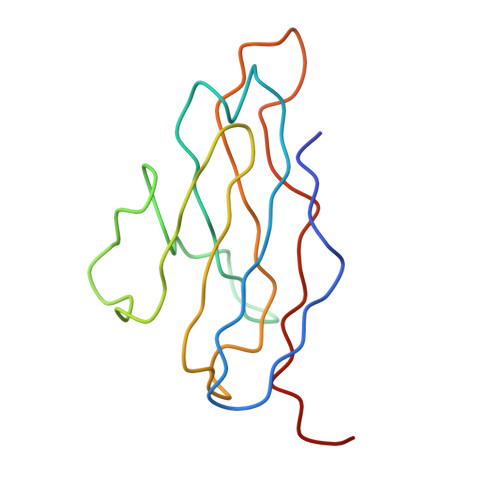Mechanism of Enhanced Immature Dengue Virus Attachment to Endosomal Membrane Induced by prM Antibody.
Wirawan, M., Fibriansah, G., Marzinek, J.K., Lim, X.X., Ng, T.S., Sim, A.Y.L., Zhang, Q., Kostyuchenko, V.A., Shi, J., Smith, S.A., Verma, C.S., Anand, G., Crowe Jr., J.E., Bond, P.J., Lok, S.M.(2019) Structure 27: 253-267.e8
- PubMed: 30471923
- DOI: https://doi.org/10.1016/j.str.2018.10.009
- Primary Citation of Related Structures:
6IDI, 6IDK, 6IDL - PubMed Abstract:
Dengue virus (DENV) particles are released from cells in different maturation states. Fully immature DENV (immDENV) is generally non-infectious, but can become infectious when complexed with anti-precursor membrane (prM) protein antibodies. It is unknown how anti-prM antibody-coated particles can undergo membrane fusion since the prM caps the envelope (E) protein fusion loop. Here, we determined cryoelectron microscopy (cryo-EM) maps of the immDENV:anti-prM complex at different pH values, mimicking the extracellular (pH 8.0) or endosomal (pH 5.0) environments. At pH 5.0, there are two structural classes with fewer antibodies bound than at pH 8.0. These classes may represent different maturation states. Molecular simulations, together with the measured high-affinity pr:antibody interaction (versus the weak pr:E interaction) and also the low pH cryo-EM structures, suggest how antibody:pr complex can dislodge from the E protein at low pH. This exposes the E protein fusion loop enhancing virus interaction with endosomes.
Organizational Affiliation:
Program in Emerging Infectious Diseases, Duke-NUS Medical School, Singapore 169857, Singapore; Centre for BioImaging Sciences, National University of Singapore, Singapore 117557, Singapore.

















